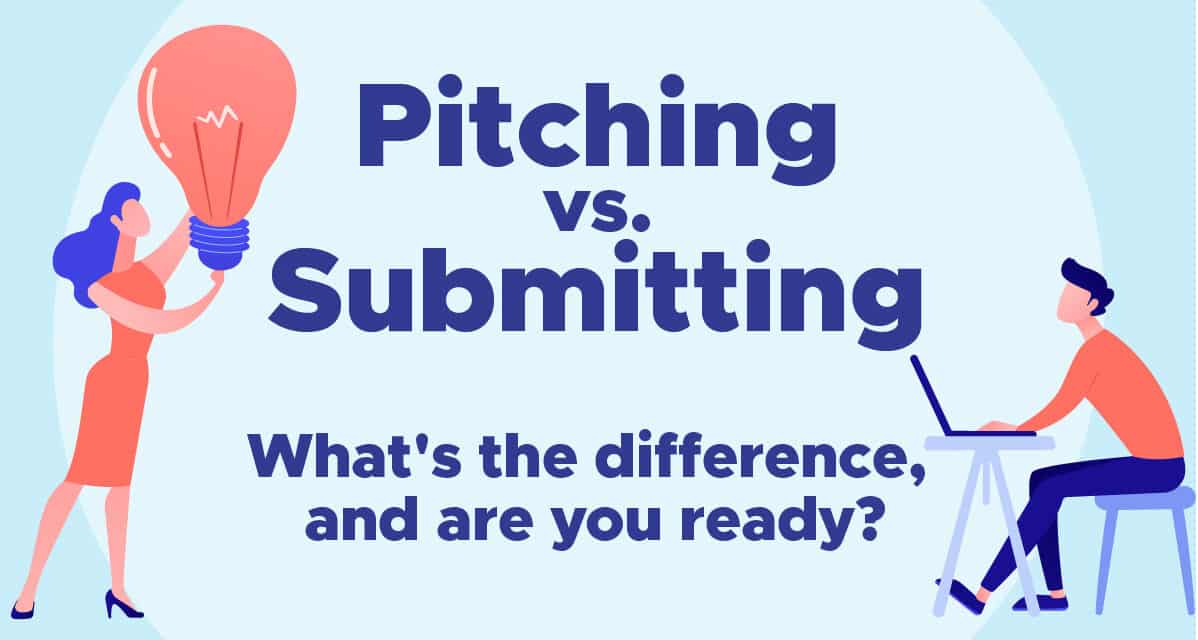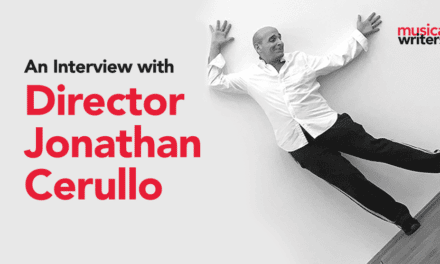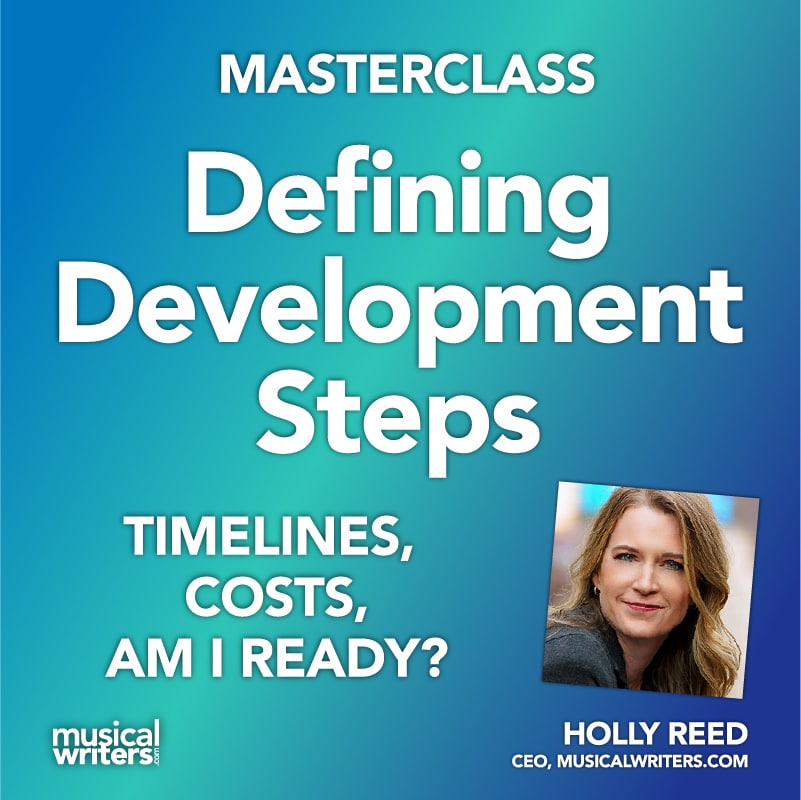To pitch or to submit – that is the question! Let’s talk about pitching vs. submitting your musical, and how to know when you’re ready for your next step.
Lights dim, the curtain rises, and a packed theater fills with the magical tunes of a brand-new musical. If you’re an aspiring musical theater writer, chances are you’ve daydreamed about this very moment. But here’s the thing: before the applause and standing ovations, you need to get your musical into the hands of the show-makers that can make this dream a reality. That’s where submitting and pitching come in.
But hold on just a moment! Before you polish those pitch documents or eagerly hit the “submit” button, there are important tasks to check off your list. The submitting vs. pitching your musical game is a delicate dance that requires careful consideration and preparation. Are you ready to take center stage?
In this article, we’ll explain the difference between a musical submission and a musical pitch, and give you a checklist of things to do and create before you send your musical baby out into the big wide theater world.
Submitting Your Musical
A musical submission refers to the act of sending in your work – typically a combination of script, score, and demo – in response to a posted opportunity. These postings can come from theater companies, festivals, competitions, or other organizations looking for fresh and original musicals to consider for production. It’s a way for aspiring theater writers to showcase their creative talent and have their work reviewed by industry professionals who are actively seeking new projects.
“Every opportunity—no matter how small—gives you street cred. The bigger players want to know someone besides you values and is willing to take a chance on your work.” -Holly Reed
Full disclosure, musical submission is a numbers game. Plan to receive lots of “no’s” on your way to each “yes.” But know that each “yes,” no matter how small the venue or production, is powerful “street cred” that vouches for your show in a really powerful way. Productions beget productions. So plan to start VERY small, and slowly work your way up to bigger and more prestigious submissions.
(P.S. Wondering where you can find places to submit? Members in our MusicalWriters Academy have access to a full 12-month submissions calendar! Click HERE for more information.)
So, how do you know when you’re ready to submit? Keep reading.
Submission Readiness Checklist
Here are some crucial assets you will need to get your musical ready for submitting (and some MusicalWriters resources that can help you get there).
- a complete and formatted first draft (check out our formatting templates and resources)
- all songs written, with either lead sheets or (preferred) a piano-vocal score
- at least one table read of the full script under your belt (check out our done-for-you table read service)
- a professional script review (check out our service here)
- demos of your 3-4 best songs (read this article for more info)
- a way to organize your submissions and responses (think spreadsheet, database, or really good Google Doc)
Pitching Your Musical
Pitching your musical involves a less straightforward process than submitting. It goes beyond simply sending your work in response to a specific call for scripts. Pitching requires you to cultivate a relationship with the person you are pitching to, usually a director, producer, or other industry professional, before ever sending your submission packet. It’s about engaging in conversations, networking, and building rapport with potential collaborators who have the power to bring your show to life.
Pitching allows you to present your musical concept, share your vision, and convey the unique qualities that make your project (and you!) stand out. It’s a chance to capture the interest and enthusiasm of individuals who may not have explicitly requested submissions but have the influence and resources champion your work.
In this video, from our 2022 Musical Writers Festival, MW CEO Holly Reed talks about both submitting and pitching. In it, she shares some of her best tricks of the trade for both. Hint, her “secret sauce” for pitching is a social media site you’ve probably left woefully neglected!
Pitching Readiness Checklists
So, how do you know when you’re ready to pitch? Here are a few milestones you should have under your belt (and some Musical Writers resources that can help):
- 3-4 instances where your show was selected for a submitted opportunity or honor (“street cred”)
- Professional (sounding) demos of 4-5 of your best songs, available somewhere online
- Professional (looking) pitch deck that can walk someone through the history, highlights, and future vision of your show (click HERE for our templates)
- Website (we offer a done-for-you service)
Submitting vs. Pitching Your Musical
The bottom line is this: submitting and pitching may sound similar, but they represent distinct stages in the journey of bringing your musical to life. Before you’re ready to confidently pitch your show to influential industry professionals, it’s crucial to have a solid foundation of accepted submissions under your belt.
Think of submitting as the stepping stone that gives musical writers practice, experience, and credibility. Through successful – and unsuccessful – submissions, you’ll develop your skills, receive valuable feedback, and prove (and improve on) your ability to create compelling musical theater.
Tell me more!
For more information about submitting and pitching your show, check out these MusicalWriters resources:
- 5 Tips for Emailing Submissions
- Submitting and Pitching Your Show to the Academy Reading Series
- Pitching Your Show to Producers: Keep It Short & Simple
- Pitching Your Show to Producers Worksheet
Ready to get serious about your submissions and pitches? Two more options to consider:
- A MusicalWriters Academy Membership includes access to a curated submission calendar AND the opportunity to submit and pitch your show for free staged readings. Click HERE to learn more about the Academy.
- The Musical Writers Festival, which takes place every July in Fort Worth, TX, is a great opportunity to learn craft and marketing secrets, and flex your networking and marketing muscles! Click HERE for more information!


















